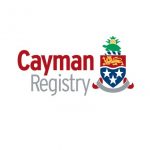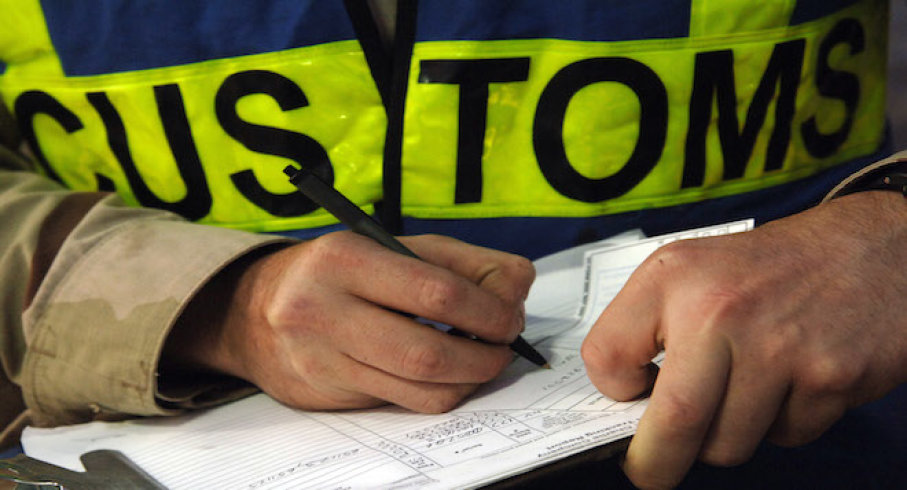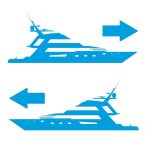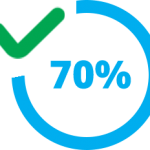
According to Shipping Notice 03/2017 released on 19st December 2017 by the Maritime Authority of the Cayman Islands, pleasure yachts registered in the Cayman Islands are now finally allowed to obtain Yacht Engaged in Trade Certification (YET). This certification includes a Yacht Engaged in Trade Certificate of Compliance (YET COC) and temporary Certificate(s) of British Registry for a Yacht Engaged in Trade (temp COBR YET) enabling the yacht to charter up to 84 days per calendar year in European (EU) waters. Please find hereby a quick summary of what the YET programme is:
A YET can be defined as a yacht of 24 metres or more in load line length, holding a valid Certificate of Class, which is voluntary compliant with all applicable commercial standards and regulations; which has obtained and maintains a Yacht Engaged in Trade Certificate of Compliance, allowing the yacht to obtain temporary Certificate(s) for a Yacht Engaged in Trade, and therefore to engaging in up to 84 days of charter per calendar year with no more than 12 passengers.
The main benefit of the program is flexibility; owners do not have to choose anymore between purely private or commercial registration. Owners can now use their yacht privately whilst being able to offset some of the running costs by offering their yacht for charter. Unlike commercially registered vessels, owners need not sign a charter agreement nor pay VAT on their own use. Unlike yachts operating under the switching regime, there is no need as well for switching between pleasure and commercial registration every time yachts change their mode of operation and use, nor to proceed with export/import formalities, leave the EU and visit a third country port each time yachts switch between pleasure and commercial use.
To be eligible to register as YETs, a yacht must either be in possession of a Value Added Tax [VAT] paid certificate or other document proving that the yacht has a VAT paid status; or operate in EU waters under the Temporary Admission [TA] regime in accordance with EU regulations meaning the yacht can enter and stay in EU waters for a period of up to 18 months without being liable to pay VAT on the hull. This second option is only available for yachts ultimately owned by non-EU residents and owned by non-EU Companies.
Pleasure yachts in possession of a valid Yacht Engaged in Trade Certificate of Compliance (YET COC) should expect to be inspected and audited as commercial yachts. Furthermore, private yachts operating under temporary Certificate(s) for a Yacht Engaged in Trade (and not only under private certificate of registration) shall be subject to inspection and control measures under the Paris Memorandum of Understanding.
For the time being pleasure yachts which are operating under a temporary YET certificate can only start their charters in Monaco, France and in Italy under certain conditions.
Please find below a quick summary of the most important points about YET:
PURPOSE
The purpose of this Shipping Notice is to define the procedure to be followed for a Pleasure yacht registered in the Cayman Islands to obtain Yacht Engaged in Trade certification.
APPLICABILITY
This Shipping Notice is applicable to all Cayman Islands registered pleasure yachts that seek to charter in EU waters, which have a VAT paid status or operate under Temporary Admission regime in EU waters.
This Shipping Notice also sets out the technical requirements necessary to qualify as a Yacht Engage in Trade.
CAYMAN ISLANDS – MEANS OF REGISTRATION
At the present, the Cayman Island Shipping Registry offer yachts two means of registration:
- full registration ‘pleasure’ and
- full registration ‘commercial’
The Yacht Engaged in Trade (YET) program has been developed as a new dual use operation program to offer a third means of registration for commercially compliant yachts. This is to allow owners the flexibility they require to operate their yacht privately with the option to charter their yacht for up to 84 days per year while taking into account EU VAT and Port State Control requirements.
Yachts meeting the requirements of this Shipping Notice will be issued with:
- a Cayman Islands Yacht Engaged in Trade Certificate of Compliance (YET COC) and
- temporary Certificate(s) of British Registry for a Yacht Engaged in Trade (temp COBR YET) covering the charter periods or periods of commercial promotion. These certificates authorize yachts to charter for up to 84 days per calendar year in European (EU) waters.
Yachts wishing to engage in trade activities are required to be in compliance with:
- the Merchant Shipping (Vessels in Commercial Use for Sport & Pleasure) Regulations, 2002;
- the applicable sections of the Large Yacht Code;
- this Shipping Notice; and
- all other applicable and international requirements.
ADVANTAGES APPLICABLE TO YACHTS ENGAGED IN TRADE (YET)
- Ultimate Beneficial Owners can privately use their yacht without losing the option to charter the yacht on an occasional basis to offset the annual running costs
- Eliminates the need for switching between pleasure and commercial registration every time the yacht is to change its mode of operation and use
- Eliminates the need to proceed to export/import formalities and the need to leave the EU and visit a third country post each time the yacht is to switch between pleasure and commercial use
- Ultimate Beneficial Owners do not need to sign a charter agreement when using their own yacht on a private basis
- Ultimate Beneficial Owners do not need to pay VAT on their own use
- No risk of substantial penalties for extensive pleasure use
- VAT Exemption is available on works for non-VAT paid yachts (inward processing relief regime)
- The 18-month Temporary Admission allowance period is paused each time the yacht is used as a Yacht Engaged in Trade (YET) and placed under Temporary Admission for Commercial Activity (TACA YET)
ELIGIBILITY FOR A YACHT ENGAGED IN TRADE (YET)
- The yacht must be 24 metres or more in length
- The yacht must be in possession of a Cayman Islands Pleasure Certificate of British Registry (Pleasure COBR)
- The yacht must successfully undergo an initial Compliance Verification survey in accordance with section 6 of this Shipping Notice
- The yacht must comply fully with the requirements of the relevant chapters of the Large Yacht Code
- The yacht must be classed by a Classification Society recognised by the Administration
- The yacht must operate in full commercial compliance at all times, whether engaged in trade or not; including full commercial compliance with all applicable national requirements and international Conventions’
- Yachts with a gross tonnage of less than 500, shall implement a Safety Management System as per the requirements of the Large Yacht Code. There is no requirement for a yacht under 500 gross tonnage to engage the services of a shore based company or Designated Person Ashore.
- The yacht must have a documented planned maintenance system for all identified critical equipment
- The yacht must hold a valid International Load Line Certificate issued in accordance with the Large Yacht Code for at least a short-range yacht
- The yacht must be issued with a Cayman Islands Yacht Engaged in Trade Certificate of Compliance (YET COC) and temporary Certificate(s) of British Registry for a Yacht Engaged in Trade (temp COBR YET) covering the charter periods or periods of commercial promotion
LIMITATIONS APPLICABLE TO YACHTS ENGANGED IN TRADE (YET)
- Whilst engaged in trade and operating under a temporary Certificate of British Registry as a Yacht Engaged in Trade (temp COBR YET), yachts are subject to any operational limitation included in the Yacht Engaged in Trade Certificate of Compliance (YET COC)
- Commercial operations / charters are limited to a maximum of 84 days per calendar year
- A maximum of 12 passengers may be carried
- Charters are currently limited to Monaco and French waters
- Owner’s pleasure use is not allowed during the period of validity of the temporary Certificate(s) of British Registry for a Yacht Engaged in Trade (temp COBR YET)
- A signed Master’s Limited Trade Declaration for a Yacht Engaged in Trade (YET) shall be made and retained for inspection on board
- Yachts certified as Yachts Engaged in Trade are not entitled to apply for any VAT exemptions on fuel or supplies
APPLICATION PROCEDURE FOR YACHT ENGAGED IN TRADE (YET) CERTIFICATION
- The registered owner of the yacht must submit registration application form and complete the applicable ‘Yacht Engaged in Trade’ (YET) declaration in section 5 of the registered form
- The yacht owner, manager or representative shall submit all applicable documentation to the Administration for Pre-Registration Vetting
- If not already in possession of a Large Yacht Code Compliance Certificate, the yacht must successfully undergo an initial Compliance Verification survey in accordance with section 7 of this Shipping Notice upon which a Yacht Engaged in Trade Certificate of Compliance (YET COC) shall be issued
- The yacht owner shall arrange for EU customs formalities to be addressed by the Customs Broker in the name of the Importer/Exporter
- The yacht must either:
- Be in possession of a Value Added Tax (VAT) paid certificate or other document proving that the yacht has a VAT paid status; or
- Operate in EU waters under the Temporary Admission (TA) regime in accordance with EU regulations which allows the yacht to enter and stay in EU waters for a period of up to 18 months without being liable to pay VAT on the full. This option is only available to yachts ultimately owned by non-EU residents and owned by non-EU Companies.
Note: a Customs Broker is only required to carry out customs formalities on behalf of the Importer/Exporter for yachts operating under Temporary Admission (TA).
The procedure includes:
- The yacht being placed under Temporary Admission (TA) followed by Temporary Admission for Commercial Activity for a Yacht Engaged in Trade (TACA YET);
- Issuance of the relevant oral declaration for the placement of the yacht under Temporary Admission (TA);
- Issuance of the relevant import/export forms to provide clearance in and out for the yacht from the Temporary Admission for Commercial Activity for a Yacht Engaged in Trade (TACA YET) regime, during the period trade activities are undertaken.
- At the end of the charter or period of commercial promotion, the Importer/Exporter shall remove the yacht from the Temporary Admission for Commercial Activity for a Yacht Engaged in Trade (TACA YET) regime.
Part of the hereby provided info has been provided by other site. More info will follow soon. Please stay tuned and always email to info@yachtwelfare.it to know more about new laws and rules applying in the Med.
Download CISR Shipping Notice 03/2017



